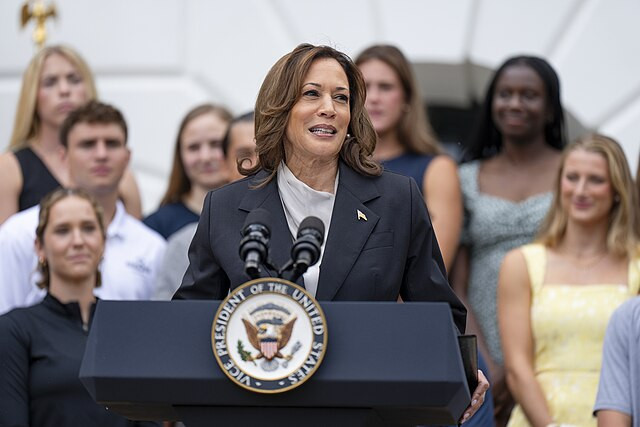In a significant policy address in North Carolina, Vice President Kamala Harris outlined her ambitious economic agenda, which she promises to prioritize within her first 100 days in office if elected as the next president of the United States. The proposals, aimed at alleviating the financial burdens on middle-class Americans, include measures to cut taxes, expand affordable housing, and implement price controls on essential goods.
"This set of bold actions will directly address the financial challenges that American families face and strengthen their economic security," the Harris campaign stated in a fact sheet released ahead of the speech.
Central to Harris's plan is a focus on curbing the rising cost of groceries, a persistent issue for households across the nation. Harris plans to introduce the first-ever federal ban on "corporate price-gouging" in the food and grocery sectors. This legislation would establish clear guidelines to prevent corporations from exploiting consumers for excessive profits, a move that Harris argues is essential for protecting American families from unfair price hikes.
To enforce these new regulations, Harris would empower the Federal Trade Commission and state attorneys general to investigate and penalize companies that violate the proposed rules. Additionally, her administration would take a more aggressive stance against mergers and consolidation in the food industry, which she believes contribute to inflated prices for basic necessities.
Housing affordability is another cornerstone of Harris's economic vision. She plans to combat rising rent costs by preventing data firms from artificially inflating lease rates and restricting Wall Street investors from buying homes in bulk to resell at a premium. Harris also aims to expand the nation's housing supply by constructing three million new housing units over the next four years. To incentivize this construction, she proposes new tax breaks for builders focused on creating "starter homes" for first-time buyers.
For those ready to transition from renting to owning, Harris's plan includes up to $25,000 in down payment assistance for working families who have consistently paid their rent on time for two years. The initiative would offer even more substantial support for first-generation homeowners, addressing one of the most significant barriers to homeownership.
Healthcare costs, particularly the price of life-saving medications like insulin, are also on Harris's radar. She aims to expand the Biden administration's $35 price cap on insulin for Medicare recipients to cover all Americans, not just those on Medicare. This move aligns with her broader goal of reining in pharmaceutical companies' abusive practices and fostering competition within the healthcare sector.
In terms of tax relief, Harris is building on President Biden's efforts by proposing the restoration of the expanded child tax credits first introduced during the COVID-19 pandemic. Under her plan, families would receive up to $6,000 in tax credits during the first year of a child's life-a period when expenses are high, and income can be reduced due to parental leave. Harris notes that many parents, particularly those without access to paid leave, are forced to choose between spending time with their newborns and maintaining sufficient income to cover their needs.
These economic proposals come at a critical juncture in Harris's campaign. Since President Joe Biden's decision to withdraw from the race in July, Harris has quickly risen to the top of the Democratic ticket. Her proposals mark the first detailed policy speech of her campaign, providing a clear contrast to her opponent, former President Donald Trump, who has also focused on economic issues in his recent addresses.
During a speech in Asheville, North Carolina, Trump attacked Harris directly, blaming her for the inflation that has plagued much of Biden's presidency. However, Harris's campaign counters that her plan not only acknowledges the ongoing economic challenges but also provides concrete solutions aimed at mitigating them.
With inflation still a pressing concern for many voters, Harris's proposals are designed to resonate with middle-class families who have felt the pinch of rising prices. Her plan emphasizes practical steps to alleviate financial strain while also signaling a continuation-and potential expansion-of some of the Biden administration's most popular policies.
Harris's speech in North Carolina, a key battleground state, also serves as a strategic move to solidify her standing among voters who remain concerned about the economy. Her proposals offer a mix of immediate relief and long-term solutions, aiming to create a more equitable economic landscape for all Americans.






